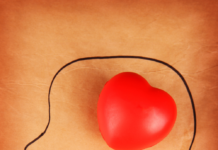Introduction
In our fast-paced modern world, stress has become an almost ubiquitous part of daily life. While some stress is normal and can even be motivating, chronic or excessive stress can take a toll on our physical and mental health. Fortunately, there are effective steps we can take to reverse the health impacts of stress. In this article, we will explore a step-by-step guide to help you regain control over your health and well-being.
Recognize the Signs of Chronic Stress
The first step in reversing the health impacts of stress is to recognize its signs and symptoms. These may include:
- Physical symptoms like headaches, muscle tension, and digestive problems.
- Emotional symptoms such as irritability, anxiety, and feelings of being overwhelmed.
- Behavioral changes like altered sleep patterns, changes in appetite, and a decline in productivity.
Being aware of these signs allows you to take proactive steps toward addressing and mitigating the impact of stress on your health.
Prioritize Stress Management Techniques
Managing stress effectively is crucial for reversing its negative health effects. Explore various stress management techniques to find what works best for you. These may include:
- Regular Exercise: Engaging in physical activity releases endorphins, which are known as “feel-good” hormones that can help alleviate stress.
- Mindfulness and Meditation: These practices promote relaxation and help calm the mind, reducing stress levels.
- Deep Breathing Exercises: Taking slow, deep breaths can activate the body’s relaxation response and counteract the stress response.
- Engaging in Creative Activities: Hobbies like painting, writing, or crafting can serve as therapeutic outlets for stress.
Foster Healthy Sleep Habits
Sleep plays a critical role in both physical and mental health. Chronic stress can disrupt sleep patterns, leading to further health issues. Establishing a consistent sleep routine, creating a comfortable sleep environment, and avoiding stimulants like caffeine close to bedtime can help improve the quality of your sleep.
Nourish Your Body with a Balanced Diet
A well-balanced diet provides the nutrients your body needs to combat the negative effects of stress. Incorporate a variety of fruits, vegetables, whole grains, lean proteins, and healthy fats into your meals. Avoid excessive consumption of caffeine, sugar, and processed foods, as they can exacerbate stress levels.
Cultivate Strong Social Connections
Maintaining meaningful relationships is crucial for mental and emotional well-being. Spending quality time with loved ones, sharing experiences, and offering support can help buffer the impact of stress. Seek out social activities, join clubs, or engage in group activities that align with your interests.
Seek Professional Support
If chronic stress is significantly impacting your health and daily functioning, consider seeking support from a healthcare professional or mental health therapist. They can provide tailored strategies and techniques to help you manage stress effectively.
Practice Self-Compassion and Self-Care
Be kind and compassionate towards yourself. Acknowledge that managing stress is a journey, and it’s normal to face challenges along the way. Prioritize self-care activities that bring you joy, relaxation, and a sense of well-being.
Engage in Relaxation Techniques
Incorporate relaxation techniques into your daily routine to counteract the effects of stress. These may include:
- Yoga: Yoga combines physical postures, breathing exercises, and meditation to promote relaxation and reduce stress levels.
- Tai Chi: This mind-body practice involves slow, flowing movements that can help calm the mind and reduce tension in the body.
- Guided Imagery: Visualization techniques can help create a sense of calm and inner peace, counteracting stress.
Set Realistic Goals and Priorities
Setting realistic goals and prioritizing tasks can help you manage your time and reduce feelings of overwhelm. Break larger tasks into smaller, manageable steps, and focus on completing one thing at a time.
Conclusion
Reversing the health impacts of stress is a multifaceted process that requires commitment and self-care. By recognizing the signs of chronic stress, prioritizing stress management techniques, fostering healthy sleep habits, nourishing your body with a balanced diet, cultivating strong social connections, seeking professional support, practicing self-compassion, engaging in relaxation techniques, and setting realistic goals, you can regain control over your health and well-being. Remember, small steps can lead to significant improvements in your overall health and quality of life.





